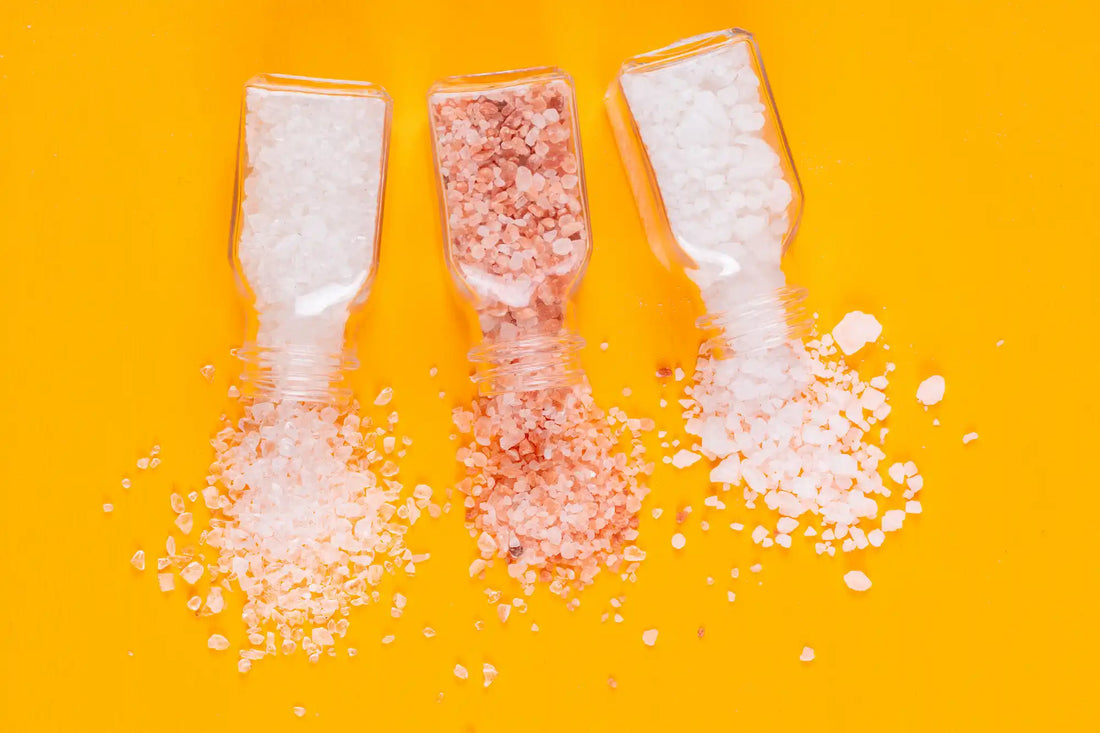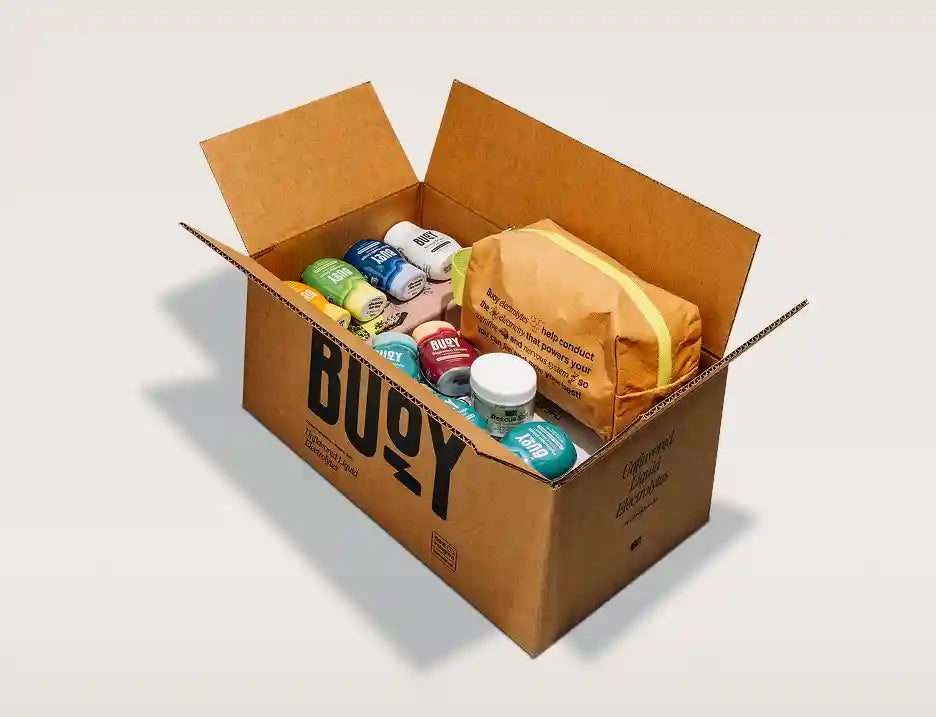
The Surprising Benefits of Sodium in Your Diet
Share
When you hear “sodium,” you might immediately think of salty snacks or health warnings but there’s more to this essential mineral than meets the eye. Sodium plays a critical role in hydration, nerve function, and overall wellness. When balanced correctly, it supports your health at a cellular level.
Essential Takeaways:
- Sodium is vital for hydration, nerve function, muscle health, and nutrient absorption—it's not inherently harmful, but needs to be consumed in balanced amounts.
- Buoy’s Hydration Drops offer a clean, sugar-free way to replenish essential sodium and trace minerals, supporting daily wellness and athletic performance without the downsides of traditional sports drinks.
Let’s uncover the truth about sodium, clear up the myths, and explore how a smart approach to sodium, like adding Buoy's hydration drops to your routine, can enhance your wellbeing.
- Why Sodium Matters More Than You Think
- The Essential Functions of Sodium in Your Body
- Balancing Sodium: Too Much vs. Too Little
- Practical Tips for Managing Sodium Intake
- Sodium and Athletic Performance
- Debunking Common Myths About Sodium
- A Better Way to Replenish Sodium: Buoy Drops
- Final Thoughts: Don’t Fear Sodium-Balance It
Why Sodium Matters More Than You Think

Sodium is a mineral and electrolyte your body depends on to:
-
Maintain fluid balance
-
Support nerve signals and muscle function
-
Regulate blood pressure and cell hydration
- Assist nutrient absorption like glucose and amino acids
Although often conflated with salt, sodium alone is just one part of table salt (sodium chloride), about 40%, to be exact.
The Essential Functions of Sodium in Your Body
-
💧 Fluid Balance: Helps regulate water inside and outside your cells
-
⚡ Nerve Transmission: Powers the messages your nerves send across the body
-
❤️ Heart & Muscle Health: Drives muscle contractions, including your heartbeat
-
🧬 Nutrient Transport: Assists in the absorption of nutrients and maintains acid-base balance
Balancing Sodium: Too Much vs. Too Little
Your body needs sodium but in the right amounts. Here’s how to strike the balance:
⚠️ Too Much Sodium:
-
Can contribute to high blood pressure
-
May lead to bone loss via calcium depletion
- Puts strain on your kidneys, reducing filtration efficiency
The American Heart Association recommends:
-
No more than 2,300 mg/day
- Ideal target: 1,500 mg/day for most adults
Yet, the average American consumes over 3,400 mg/day, primarily from processed and restaurant foods.
⚠️ Too Little Sodium:
Low sodium (hyponatremia) is less common, but still dangerous. It can cause:
-
Headaches, fatigue, confusion
-
Muscle weakness or cramps
- In severe cases, seizures or coma
A sodium deficit can also compromise heart function and cognitive health.
Practical Tips for Managing Sodium Intake
Balance is the key, not elimination. Here’s how to optimize your sodium levels:
-
Read Labels: Look for low-sodium versions of packaged foods
-
Cook Fresh: Rely more on whole foods and herbs for flavor
-
Hydrate Smartly: Drinking water is great, but if you’ve lost a lot of electrolytes through sweat, you’ll need sodium too
- Supplement with Purpose: Use Buoy’s hydration drops to restore essential electrolytes without added sugar, sweeteners, or artificial ingredients
Sodium and Athletic Performance

If you're physically active, sodium isn’t just important—it’s essential. During exercise, your body loses sodium through sweat, which needs to be replaced for:
-
Proper hydration
-
Preventing cramps
- Faster post-workout recovery
🏃 Tips for Athletes:
-
Before Exercise: Pre-load with sodium to reduce the risk of dehydration
-
During Workouts: Use electrolyte-enhanced drinks to maintain fluid and salt balance
-
After Training: Replenish sodium to speed up recovery and prevent muscle soreness
Pro Tip: Buoy’s Hydration Drops offer a sugar-free, unflavored option for athletes to supplement sodium on-the-go, without the drawbacks of sugary sports drinks.
Debunking Common Myths About Sodium
Let’s set the record straight:
❌ Myth - All sodium is bad
✅ Truth - Sodium is essential; the problem is overconsumption, not sodium itself
❌ Myth- Reducing salt alone fixes all sodium-related issues
✅ Truth- You need a holistic approach, looking at processed foods, hydration, and overall diet
Want more myth-busting? Don’t miss our blog post: Fact or Fiction: Does Sodium Really Dehydrate You?
A Better Way to Replenish Sodium: Buoy Drops

Looking for a smarter way to support your sodium levels? Buoy Hydration Drops make it easy to:
-
Enhance any beverage without altering taste
-
Add essential sodium and 87+ ionic trace minerals
-
Avoid sugar, stevia, and artificial additives
-
Maintain electrolyte balance for daily wellness, workouts, and travel
Whether you’re active, health-conscious, or simply want better hydration support, Buoy is your go-to, functional hydration solution.
Final Thoughts: Don’t Fear Sodium-Balance It
Sodium is not the enemy. It’s a critical mineral your body needs to function properly. The key lies in awareness, moderation, and smart supplementation.
By understanding sodium’s true role and using tools like Buoy’s clinically-studied drops, you can hydrate more effectively, feel better, and take control of your wellness, without compromise.




